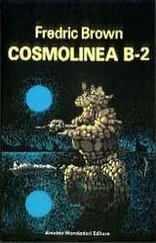Эллен Глазгоу - Barren Ground
Здесь есть возможность читать онлайн «Эллен Глазгоу - Barren Ground» весь текст электронной книги совершенно бесплатно (целиком полную версию без сокращений). В некоторых случаях можно слушать аудио, скачать через торрент в формате fb2 и присутствует краткое содержание. Жанр: Классическая проза, на английском языке. Описание произведения, (предисловие) а так же отзывы посетителей доступны на портале библиотеки ЛибКат.
- Название:Barren Ground
- Автор:
- Жанр:
- Год:неизвестен
- ISBN:нет данных
- Рейтинг книги:3 / 5. Голосов: 1
-
Избранное:Добавить в избранное
- Отзывы:
-
Ваша оценка:
- 60
- 1
- 2
- 3
- 4
- 5
Barren Ground: краткое содержание, описание и аннотация
Предлагаем к чтению аннотацию, описание, краткое содержание или предисловие (зависит от того, что написал сам автор книги «Barren Ground»). Если вы не нашли необходимую информацию о книге — напишите в комментариях, мы постараемся отыскать её.
Barren Ground — читать онлайн бесплатно полную книгу (весь текст) целиком
Ниже представлен текст книги, разбитый по страницам. Система сохранения места последней прочитанной страницы, позволяет с удобством читать онлайн бесплатно книгу «Barren Ground», без необходимости каждый раз заново искать на чём Вы остановились. Поставьте закладку, и сможете в любой момент перейти на страницу, на которой закончили чтение.
Интервал:
Закладка:
Straight, tranquil, thin and fugitive as mist, the snow was falling. Though the transparent flakes vanished as soon as they reached the earth, they diffused in their steady flight an impression of evanescence and unreality. Through this shifting medium the familiar scene appeared as insubstantial as a pattern of frost on the grass. It was as if the secret spirit of the land had traced an image on the flat surface, glimmering, remote, unapproachable, like the expression of an animal that man has forced into sullen submission. There were hours at twilight, or beneath the shredded clouds of the sunrise, when the winter landscape reminded Dorinda of the look in the faces of overworked farm horses. At such moments she would find herself asking, with the intellectual thrill of the heretic, "I wonder if everything has a soul?" The country had been like this, she knew, long before she was born. It would be like this, she sometimes thought, after she and all those who were living with her were dead. For the one thing that seemed to her immutable and everlasting was the poverty of the soil.
Without knowing that she looked at it, her gaze rested on the bare station; on the crude frame buildings, like houses that children make out of blocks; on the gleaming track which ran north and south; on the old freight car, which was the home of Butcher, the lame negro who pumped water into the engines; on the litter of chips and shavings and dried tobacco, stems which strewed the ground between the telegraph poles and the hitching-rail by the store. Farther away, in the direction of Whippernock River, she could see the vague shape of the ruined mill, and beyond this, on the other side of the track, the sunken road winding in scallops through interminable acres of broomsedge. Though the snow had fallen continuously since noon, the air was not cold, and the white glaze on the earth was scarcely heavier than hoar-frost.
For almost a year now, ever since Mrs. Pedlar had fallen ill of consumption, and Dorinda had taken her place in the store, the girl had listened eagerly for the first rumble of the approaching trains. Until to-day the passing trains had been a part of that expected miracle, the something different in the future, to which she looked ahead over the tedious stretch of the present. There was glamour for her in the receding smoke. There was adventure in the silver-blue of the distance. The glimpse of a rapidly disappearing face; a glance from strange eyes that she remembered; the shadowy outline of a gesture; these tenuous impressions ran like vivid threads in her memory. Her nature, starved for emotional realities, and nourished on the gossamer substance of literature, found its only escape in the fabrication of dreams. Though she had never defined the sensation in words, there were moments when it seemed to her that her inner life was merely a hidden field in the landscape, neglected, monotonous, abandoned to solitude, and yet with a smothered fire, like the wild grass, running through it. At twenty, her imagination was enkindled by the ardour that makes a woman fall in love with a religion or an idea. Some day, so ran the bright thread of her dream, the moving train would stop, and the eyes that had flashed into hers and passed by would look at her again. Then the stranger who was not a stranger would say, "I knew your face among a thousand, and I came back to find you." And the train would rush on with them into the something different beyond the misty edge of the horizon. Adventure, happiness, even unhappiness, if it were only different!
That was yesterday. To-day the miracle had occurred, and the whole of life had blossomed out like a flower in the sun. She had found romance, not in imagination, not in the pallid fiction crushed among the tomes in her great-grandfather's library, but driving on one of the muddy roads through the broomsedge. To the casual observer there was merely a personable young man, the son of old Doctor Greylock, making the scattered rural calls of a profession which his father was too drunk to pursue. A pleasant young man, intelligent, amiable, still wearing with a difference the thin veneer of the city. Though he was, perhaps, a trifle too eager to please, this was a commendable fault, and readily overlooked in an irreproachable son who had relinquished his ambition in order to remain with his undeserving old father. Filial devotion was both esteemed and practised in that pre-Freudian age, before self-sacrifice had been dethroned from its precarious seat among the virtues; and to give up one's career for a few months, at most for a possible year, appeared dutiful rather than dangerous to a generation that knew not psychoanalysis.
And he was not only an admirable young man, he was, what admirable young men frequently are not, attractive as well. His dark red hair, burnished to a copper glow, grew in a natural wave; his sparkling eyes were brown-black like chinkapins in the autumn; his skin was tanned and slightly freckled, with a healthy glow under the surface; his short moustache, a shade lighter than his hair, lent mystery to a charming, if serious, mouth, and his smile, indiscriminating in its friendliness, was wholly delightful. To Dorinda, meeting him in the early morning as she was walking the two miles from Old Farm to the store, it was as if an April flush had passed over the waste places. She recognized love with the infallible certainty of intuition. It was happiness, and yet in some strange way it was shot through with a burning sensation which was less pleasure than pain. Though her perceptions were more vivid than they had ever been, there was an unreality about her surroundings, as if she were walking in some delicious trance. Beautiful as it was, it seemed to be vanishing, like a beam of light, in the very moment when she felt it flooding her heart. Yet this sense of unreality, of elusiveness, made it more precious. Watching the empty roads, through the veil' of snow, she asked herself every minute, "Will he come this way again? Shall I wait for him, or shall I let him pass me in the road? Suppose he goes back another way! Suppose he has forgotten-"
The door behind her opened, and old Matthew Fairlamb came hobbling out with the help of his stout hickory stick. Though he was approaching ninety, he was still vigorous, with a projecting thatch of hair as colourless as straw and the aquiline profile of a Roman senator. In his youth, and indeed until his old age, when his son William succeeded him, he had been the best carpenter at Pedlar's Mill. His eyes were bleared now, and his gums toothless; but he had never lost his shrewd Scotch-Irish understanding or his sense of humour, which broke out in flashes as swift and darting as dry-weather lightning.
"You'd better be startin' home, Dorinda," he remarked as he passed her. "The snow means to keep up, and yo' Ma will begin to worry about you." Turning, he peered at her with his cackling laugh. "Yo' face looks like a May mornin' to my old eyes," he added. "I ain't seen you about here fur a couple of weeks."
With her gaze still on the distance, Dorinda answered impatiently, "No, Ma had one of her bad spells, and I had to help out at home. But no matter how sick she is she never gives up, and she never worries about anything smaller than eternal damnation."
"Yes, she's a pious one," old Matthew conceded. "It's faith, I reckon, that's kept her gain', sence the Lord must know He ain't made it none too easy for her."
"Oh, it's hard work that she lives on," replied Dorinda. "She says if she were to stop working, she'd drop down dead like a horse that is winded. She never stops, not even on Sundays, except when she is in church."
Old Matthew's hilarity dwindled into a sigh. "Well, thar ain't much rest to be got out of that," he rejoined sympathetically. "I ain't contendin' against the doctrine of eternal damnation," he hastened to explain, "but as long as yo' Ma is obleeged to work so hard, 'tis a pity she ain't got a mo' restful belief." Then, as he observed her intent gaze, he inquired suspiciously, "You don't see nary a turnout on the road, do you?"
Читать дальшеИнтервал:
Закладка:
Похожие книги на «Barren Ground»
Представляем Вашему вниманию похожие книги на «Barren Ground» списком для выбора. Мы отобрали схожую по названию и смыслу литературу в надежде предоставить читателям больше вариантов отыскать новые, интересные, ещё непрочитанные произведения.
Обсуждение, отзывы о книге «Barren Ground» и просто собственные мнения читателей. Оставьте ваши комментарии, напишите, что Вы думаете о произведении, его смысле или главных героях. Укажите что конкретно понравилось, а что нет, и почему Вы так считаете.










![Эллен Дедженерес - Кроме шуток [Как полюбить себя, продать дуршлаг дорого, прокачать мозг с помощью телешоу и другие истории от Эллен Дедженерес] [litres]](/books/384873/ellen-dedzheneres-krome-shutok-kak-polyubit-sebya-p-thumb.webp)

